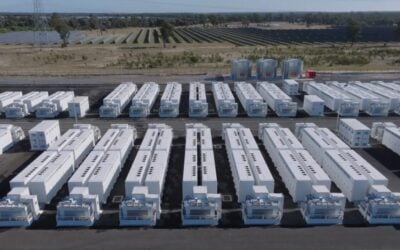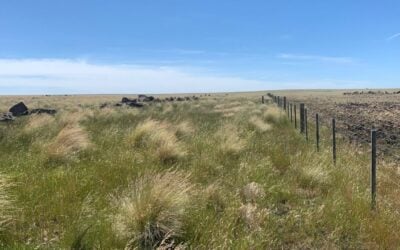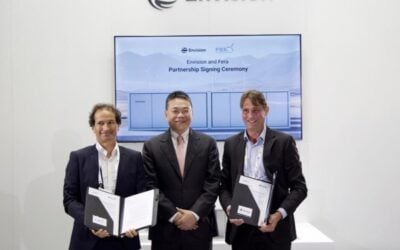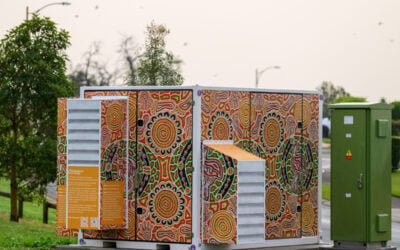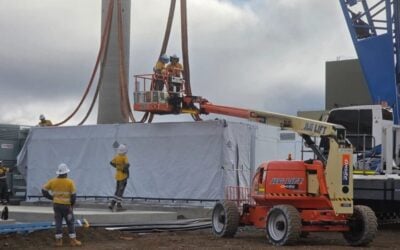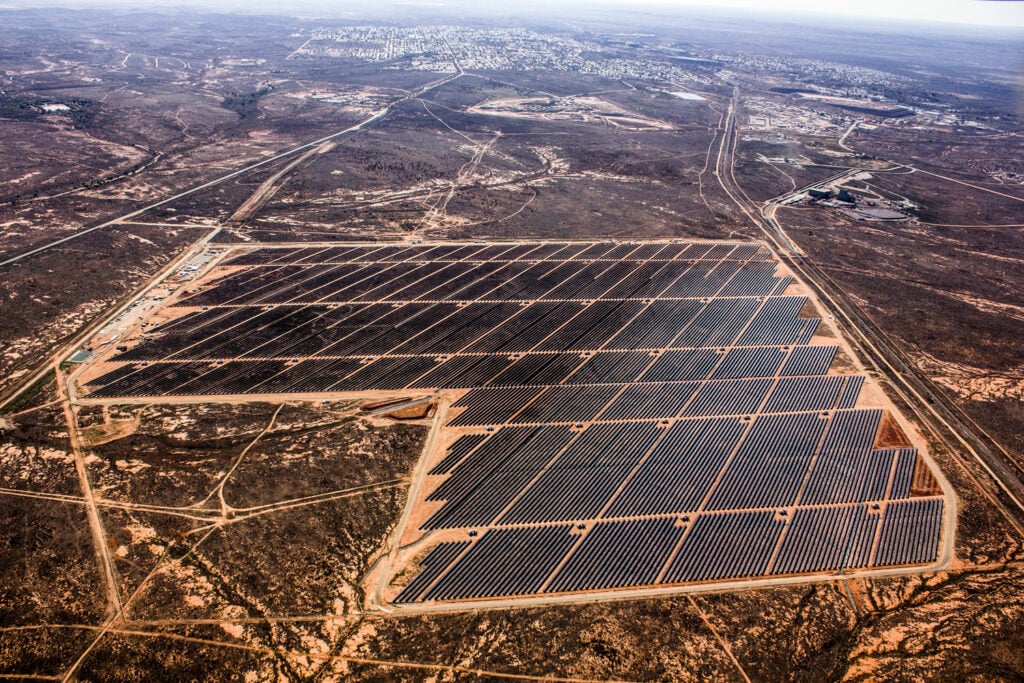
Construction has begun on a large-scale battery storage project which will demonstrate advanced inverter technology, in the historic mining region of Broken Hill, New South Wales, Australia.
Major Australian energy generator-retailer AGL announced this morning that it has broken ground on the 50MW/50MWh battery energy storage system (BESS), aiming to have it operational by mid-2023.
Enjoy 12 months of exclusive analysis
- Regular insight and analysis of the industry’s biggest developments
- In-depth interviews with the industry’s leading figures
- Annual digital subscription to the PV Tech Power journal
- Discounts on Solar Media’s portfolio of events, in-person and virtual
Broken Hill has a long history as a mining city, which brought industry to the area in the mid-20th Century as silver ore was discovered. More recently, the area has become home to solar PV and wind installations, including AGL’s 53MW Broken Hill PV plant which went online in 2016 and its 200MW Silverton wind farm which went online a year later.
However, Broken Hill only has a weak connection to the grid and locally generated renewable energy is often curtailed at times of surplus. The site was chosen as an ideal location to test out the capabilities of smart inverters to help balance the local electricity network.
As reported by Energy-Storage.news in March, the AU$41 million (US$26.32 million) project is being supported by the Australian Renewable Energy Agency (ARENA) with AU$14.83 million of its cost. AGL’s BESS project will demonstrate and test how advanced inverters can provide inertia to the electricity network, a role traditionally performed by the rotating mass of thermal power generators.
“As Australia’s electricity system switches to higher rates of renewables it will be increasingly important to deliver storage solutions that have the capabilities to stabilise the grid,” ARENA CEO Darren Miller said at an event yesterday to mark the start of the project’s construction phase.
“AGL’s Broken Hill Battery allows us to test advanced inverter technology in some of the most challenging conditions for the grid, while also improving system security and stability in the region.”
Technology provider and system integrator Fluence has been contracted to supply the Broken Hill BESS. The company said the battery system will be permanently set to grid-forming mode, resisting changes in network voltage and frequency, and providing synthetic inertia through the ‘Virtual Machine Mode’ in the Fluence software and controls system.
Wave of advanced inverter projects
The ARENA demonstration project concludes in July 2025. It aims to accelerate commercialisation of large-scale BESS with grid-forming inverters in weak-grid areas, provide cheaper alternatives to expensive grid infrastructure equipment like synchronous condensers, help de-risk renewable energy investment, inform stakeholders like network operators and utilities of the capabilities of smart inverters.
The project will also be used to assess whether there needs to be standardisation of equipment and protocols for grid-forming battery systems.
This is important because Broken Hill is one of just many battery storage projects that are being fitted out with advanced inverters. Some existing large-scale BESS assets, like the Hornsdale Power Reserve in South Australia, have been retrofitted with them.
At the same time, ARENA is offering funding for other new advanced inverter BESS projects and earlier this year launched a competitive solicitation.
In September, the state government of Victoria announced AU$126 million funding for two grid-forming battery storage projects.
In addition to its grid-forming duties, the Broken Hill BESS will also play into opportunities in the National Electricity Market (NEM) for applications like frequency control ancillary services (FCAS) and wholesale arbitrage.
The BESS could be joined in Broken Hill in a few years by a much larger system using a very different technology. Canadian company Hydrostor is developing a 200MW/1,600MWh advanced compressed air energy storage (A-CAES) plant in the region.
Last month ARENA committed AU$45 million towards the cost of Hydrostor’s Silver City project. It has already been chosen by New South Wales transmission network operator Transgrid as its preferred option to provide backup power supply to the city of Broken Hill. Hydrostor hopes to achieve financial close on the project next year.
Meanwhile for AGL, Broken Hill is the latest in an energy storage portfolio buildout that looks likely to include a couple of multi-gigawatt-hour battery systems at former coal power plant sites.

